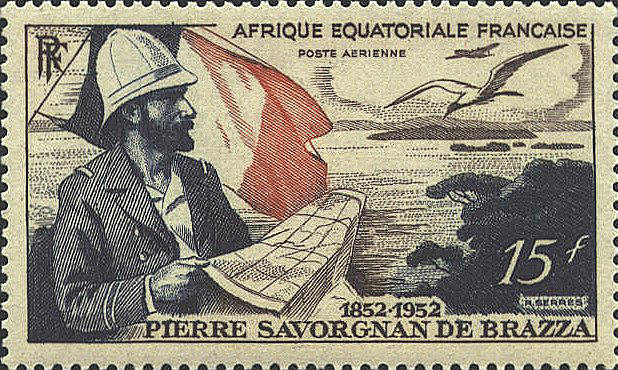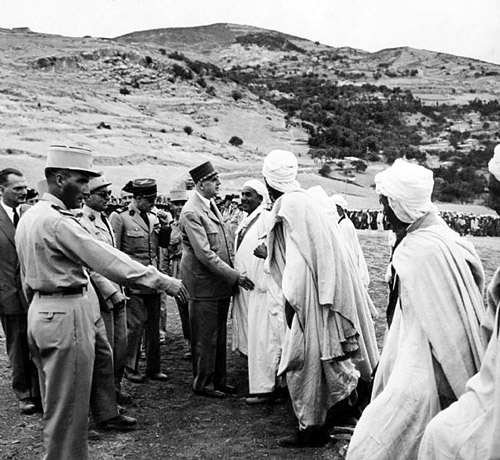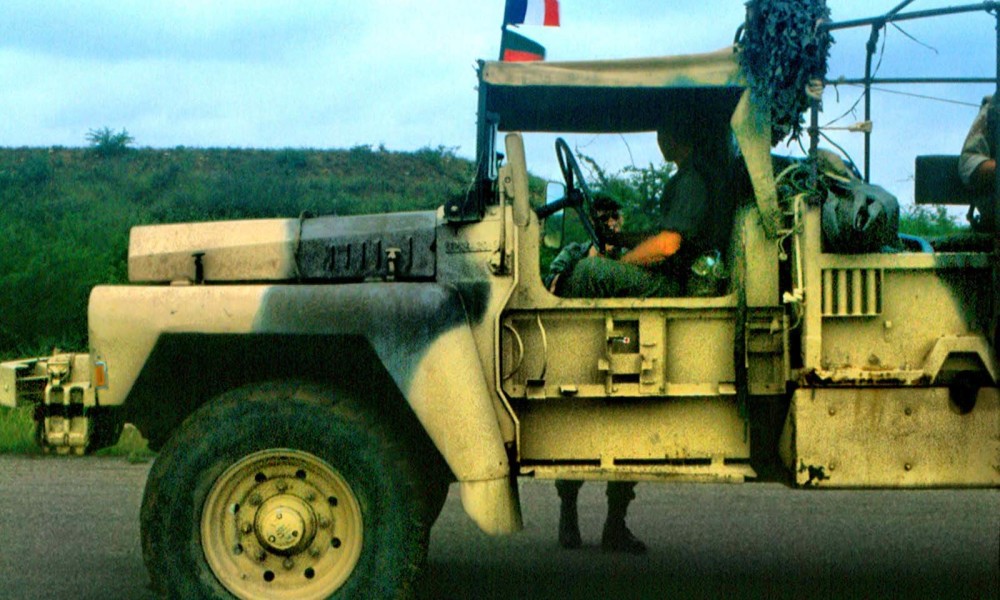The words of Sekou Toure still Echoes through history “We prefer freedom in poverty than slavery in opulence”. He among many African leaders have seen the ills and evils colonisation has done to the continent. While British colonies experienced a system of indirect rule where local elites were used for political administration. French colonies experienced a system of direct rule of assimilation where the French attempted to impact their way of life in their colonies. To a large extent, British colonies could make decisions for themselves after independence, however, this isn’t so for francophone countries as they are still tied to the apron strings of their colonial masters.
The incursion of France into Africa started long before the struggle and partition for Africa in 1885/86. After the fall of the Ottoman Empire in the 1600’s, France invaded Africa and started trade relations with the North Africa. However, her presence overburdened this region of Africa when Britain, France, Portugal and Germany partitioned Africa into spheres of influence for colonisation.
Subjugation or a Civilising Mission
Francophone countries in Africa are mostly found in the eastern and northern region. These areas were colonised by France and assimilated into French way of life. While other colonial masters were majorly just after economic gains, France aimed at turning the then Arab and Islamic nations of the Far East into French citizens. The plight of these countries started in the 1600’s. It became a moral mission to lift the world up to French standards by inculcating Christianity and French culture into their colonies. In 1884, Jules Ferry an ardent proponent of colonialism, stated that; “The higher races have a right over the lower races, they have a duty to civilise the inferior races.” Although French colonies were granted full citizenship rights, they were still treated like subjects not citizens.
“Without Africa, France will have no history in the 21st century”-Francios Mitterand, 1957
In March 2008, former French president, Jacques Chirac stated that “without Africa, France will slide down into the rank of a third rate power”. This is in agreement with the fact that the African continent serves as a reserve from which France sustains her economic position.

In 1951 French Equatorial Africa issued a stamp to commemorate the 100th anniversary of the birth of Pierre Paul François Camille Savorgnan de Brazza (1852-1905). The map on the stamp shows a portion of the east coast of Africa at the southern part of French Equatorial Africa. De Brazza was instrumental in the establishment of the French colonies on the east coast of Africa.
According to Mawuna Remarque Koutonin, an activist and editor of siliconAfrica.com, 14 African countries are obliged by France, through colonial pact, to put 85% of their foreign reserve into France’s Central Bank under French minister of Finance control. Until 2014, Togo and about 13 other African countries still have to pay colonial debt to France. It’s commonly believed that the African leaders who refuse are killed or become victims of coup. Those who obey are supported and rewarded by France with lavish lifestyle while their people endure extreme poverty and desperation. It was in this fear that Senegal’s Leopold Sédar Senghor declared in 1958 that “The choice of the Senegalese people is independence; they want it to take place only in friendship with France, not in dispute.”
From then on France accepted only an “independence on paper” for her colonies, but signed binding “Cooperation Accords”, detailing the nature of their relations with France, in particular ties to France colonial currency (the Franc), France educational system, military and commercial preferences. The following are the terms of relations between France and her ex colonies.
- Right of first refusal on any raw or natural resource discovered in the country
- Priority to French interests and companies in public procurement and public biding
- Exclusive right to supply Military equipment and Train the country’s Military officers
- Right for France to pre-deploy troops and intervene in the country to defend its interests
- Obligation to make French the official language of the country and the language for education
- Obligation to use France colonial money FCFA
- Obligation to send France annual balance and reserve report
- Renunciation to enter into military alliance with any other country unless authorized by France
Obligation to ally with France in situation of war or global crisis
France has been holding the national reserves of fourteen African countries since 1961: Benin, Burkina Faso, Guinea-Bissau, Ivory Coast, Mali, Niger, Senegal, Togo, Cameroon, Central African Republic, Chad, Congo-Brazzaville, Equatorial Guinea and Gabon.
Independent & In Chains
Although all African countries have received independence, it should be noted that most francophone countries went through bitter armed struggles to be liberated. French colonies (most notably Algeria) got their independence by the blood and sweat of heroic patriots.

Charles de Gaulle, president of France, meets some Algerians in August 1959; photo credit
It is disheartening to know that despite the difficulty in attaining independence by francophone countries, they are still under the control of France. Francophone countries that have attempted to break this asymmetrical relationship have been dealt with mercilessly. These countries were/are asked to pay to France what they tagged “benefits of civilisation”. In Guineau under the government of Sekou Toure, hospitals and schools were destroyed, Reserves were poisoned by the French to mark their exit. At this point, the exodus of the French became a cost Guineau could not bear. More seriously is the fact that rebellious heads of states are mysteriously found dead. For instance Modibe Keita, first president of republic of Mali was a victim of a coup plotted by ex-French foreign legionnaire in 1968. This was after he attempted to pull out from the French colonial currency and lean towards a more socialist economy. Same was the plight of Maurice Yameogo of Upper Volta (now Burkina Faso) in 1966, Mathieu Kerekou of the republic of Benin in 1972 and David Dacko of Central African Republic in 1966.
Statistics shows that 61% of coups happened in francophone countries; out of 26 African countries that experienced coups of various kinds, 16 of such countries were ex French colonies. The French has fashioned out a way to keep her ex colonies in check, either by threats, sanctions or outright assassinations.
The Deafening Silence of the International Community
The plight of francophone countries is not unknown to the international community. Although the European Union has distanced itself from the activities of France in Africa, much has not been done to put her in check. One would think that the United Nations would sanction France and force her to let francophone countries be. The international community has remained silent and Africans are suffering. It should be noted that if francophone countries are going to ever break free, they need the unanimous support of the international community to do so.
When Will it End?
While many Africans yearn silently for the end of French domination, no one can say when the French will have enough. Haiti is usually used for historical comparison in this area. France made Haiti to pay the modern equivalent of $21 billion from 1804 till 1947 (almost one century and half) for the losses caused to French slave traders by the abolition of slavery and the liberation of the Haitian slaves. This is what is expected from other francophone countries as well. A compensation for the losses incurred by the abolition of slave trade. One would rather think that it is the French that owes Africa a lot because of the vast resources they have exported in human and materials.
The leadership in most francophone countries has become distorted as the leaders are mere puppets in the hands of the French. Perhaps, African leaders would work in the interest of their people if they were not constantly stalked and bullied by colonial countries. For fear of assassination or threats, African leaders simply fall in line like simpletons. One may find it interesting, how a French army of about 700 was able to control a population of more than 2milliom in Cote d’Ivoire. Maybe Africans need to employ a new tactic not previously used.
Africa has experienced and endured exploitation from Europe and Asia in the name of civilisation. She has lost both human & material resources and time. While colonisation officially came to an end after the universal declaration of human rights, the effects are still felt till date.
[Header image] – French legionaires outside of Kismaayo – Somalia 1992 / John Martinez Pavliga – Flickr



